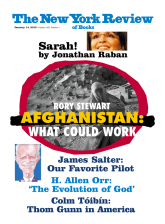Recent reports on my activities in Kurdistan call for a response. I have been both a writer on Iraq and an active participant in events there. After being an eyewitness to Saddam Hussein’s genocide against the Kurds in the 1980s, I came to the view that the Iraqi Kurdish aspiration for independence was morally justified and the only sure means of protecting the Kurdish people. In late 2003 and early 2004, I helped Kurdistan’s leaders draft a proposal for a self-governing Kurdistan that was submitted to the Coalition Provisional Authority on February 11, 2004, for inclusion in Iraq’s interim constitution. Under the proposal, Kurdistan had its own government and military, Kurdistan law prevailed over Iraqi law, and Kurdistan controlled its own natural resources, including oil.
As Kurdistan’s leaders recognized, legal control over oil meant nothing unless there was a Kurdistan oil industry. In June 2004, I helped bring DNO, a Norwegian oil company, into Kurdistan. I was paid by DNO and entered into a financial arrangement with the company through a Delaware partnership, Porcupine LP. That year DNO discovered oil in Kurdistan and its pioneering efforts have attracted more than thirty other companies, creating a robust Kurdistan oil industry and giving the Kurds the financial basis for meaningful self-government.
In the summer of 2005, Kurdistan’s leaders asked me to advise them on the negotiations for the permanent constitution. Their proposal was identical to the one they made in February 2004 and they achieved virtually all of it. In its November 12, 2009, article, The New York Times says that I “pushed through” these constitutional provisions for my own benefit. The Times gave no source for this allegation and its reporter never asked me about it.
As even a superficial analysis would show, the allegation could not possibly be true. I was a private citizen, unconnected to any government and with no power to push through anything. I was not directly involved in any negotiations and was not in the room when they took place. I simply provided advice, unpaid and on an informal basis, to the Kurdish leaders, who knew of my arrangements with DNO when they asked for my advice. The Kurds, who had been fighting for independence or autonomy for eighty years, had set the agenda and they pushed through their own proposals. Although the Times asserts that my relationship with DNO was largely undeclared, it was also known to the US and Iraqi governments and I represented the company on a joint committee with the Iraqi Ministry of Oil.
A separate issue arises over what I should have disclosed in connection with my articles in The New York Review of Books. I discussed Kurdistan’s autonomy proposals, including those on oil, in a piece written in March 2004 entitled “How to Get Out of Iraq.” At this time, I did not have any business relationships. Subsequently, I wrote several other articles in 2004 and 2005, some of which briefly discussed the oil issue, and did not mention my business arrangements. These arrangements were covered by confidentiality agreements, but I should have stated that I had business interests in Kurdistan. I regret not having done so and apologize to the editors and readers of The New York Review of Books. In my later articles, I did state that I was “a principal at the Windham Resources Group, a firm that negotiates on behalf of its clients in post-conflict societies, including in Iraq.”
In June 2009, I joined the United Nations as deputy special representative of the secretary-general in Afghanistan. At that time, I terminated all my business activities. Neither I nor Porcupine LP has any ongoing contractual relationship or financial arrangement with DNO. We do not hold an interest in any Iraqi oil field. Porcupine is the plaintiff in an arbitration with DNO related to past disputes from which I may or may not benefit. When I was appointed to the UN position, I disclosed all my financial interests, including those related to the Porcupine–DNO arbitration.
This Issue
January 14, 2010



